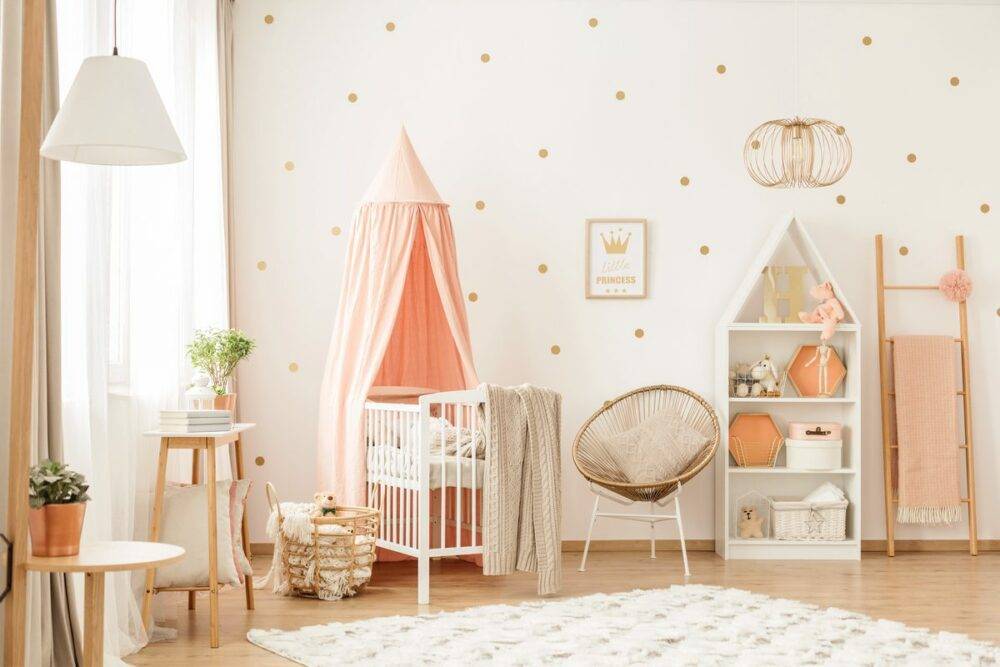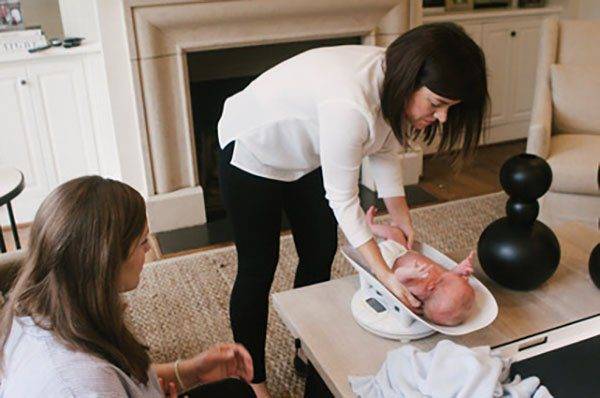Breastfeeding is beautiful. It’s one of the most natural things in the world, and the bond it creates between mom and baby is powerful. In fact, recent reports from the CDC found that 8 out of 10 mothers in the U.S. choose to breastfeed their babies at birth. But, like so many aspects of motherhood, it can be challenging. So challenging that statistics say that approximately 58 percent decide to switch their children to formula by the time they’re 6 months old.
Whether you decide to exclusively breastfeed, supplement with formula, pump, or any combination of these, it’s important to have tools handy that will help you on this journey. Here are our top 5 breastfeeding and pumping products and services we love and that I can personally attest to.
1. Haakaa Silicone Breast Pump
Ask any breastfeeding mama what her favorite accessory is, and we bet she’ll tell you it’s her Haakaa. This is a game-changer for moms who feed their babies at the breast or through pumping as it helps ensure that no drop of that precious liquid gold goes to waste.
The Haakaa silicone breast pump uses a powerful, but comfortable, suction to draw milk out of the breast. This is extremely helpful in collecting otherwise wasted milk that can leak from the unbuckled breast during a feeding or pumping session. Perhaps the best part is that it can be used hands-free. It’s ideal to use in the first few months after childbirth when your supply is at its highest point, but it can be used throughout your breastfeeding or pumping journey. It can also help build up a fridge or freezer stash if you’re wanting to save up for future bottle-feeding or to donate.
2. A Comfortable Breastfeeding Pillow
A comfy nursing pillow can make or break your breastfeeding journey. These help bring your baby up to the level of your breasts, receding the need for mamas to hunch over and bring their breasts to their baby. These are especially beneficial for mamas with large breasts, moms who are recovering from a C-section, or moms of multiples. They also open up lots of possible breastfeeding positions, like the side-lying position or the football hold.
Most importantly, breastfeeding pillows reduce strain on a nursing mama’s neck, shoulders, back, and arms. They can even be used to support your own body rather than your baby’s. It’s crucial to find a nursing pillow that’s not too hard, not too soft, and made of a flexible, but supportive, material that can facilitate various nursing positions. One of the most popular options is the Boppy.
3. Homemade or Store-Bought Lactation Cookies
There are lots of products and supplements out there that claim to help increase breastmilk supply — teas, smoothies, brownies, coffee stirrers, you name it. The primary ingredients to look for in any pre-packaged that claims to dramatically boost your milk production are fenugreek, brewer’s yeast, oats, and barley. Milkmakers Oatmeal Chocolate Chip Lactation Cookie Bites are a great option if you want something off the shelf. (Target keeps them in stock in convenient 2-oz. packages.)
Another option is to make your own lactation treats. Try these recipes for Chocolate Chip Lactation Cookies and Momma’s Milk Power Bites. (PSA — Despite what your husband may think, these are safe for them to eat and will not make them lactate. If they do, however, good! Now they can pitch in with feeding the baby.)
4. A Dependable Electric Breast Pump
If you’re planning to embark on your own breastfeeding journey, it’s wise to invest in a high-quality breast pump, even if you hope to exclusively breastfeed. Pumping is a great way to increase your milk supply between feedings. Many moms who work depend on this to extend the longevity of their breastfeeding season, even though they may have to be away from their babies several hours each day, as well as for moms who want Dad to help with feedings via a bottle.
I can personally attest to the Spectra Baby S2 Plus and S9 Plus electric pumps. These offered great suction and portability during the months I breastfed and pumped for my son. Many moms also swear by Medela electric breast pumps.
And the best part is that many insurance providers cover the entire cost of a pump. Just make sure you opt for a new pump rather than a used one, for sanitary reasons both for you and baby.
5. Nipple Shields
Breastfeeding may be natural, but it doesn’t always come naturally for new moms. (And that’s OK!) This is where nipple shields come in handy, especially during those first few weeks when you and baby are still figuring out this whole breastfeeding thing.
A breastfeeding nipple shield is a silicone false nipple that is placed over the mother’s nipple to help her baby latch. They’re soft and flexible, and shouldn’t irritate your skin. They suction to mama’s skin to stay in place during feedings and offer a larger nipple for the baby to suckle. They’re especially helpful for women who are struggling with getting their baby to latch, women who are suffering from sore or cracked nipples, or women with inverted nipples.
Just make sure you select the right size, which is based on the diameter of nipples in millimeters. Your doctor or lactation consultant can help you with this if you’re unsure. Some tried and true brands include Medela, Lansinoh, Haakaa, and Ameda.
Do Yourself a Favor and Hire a Lactation Consultant
Breastfeeding is the most natural and arguably the healthiest way to nourish your baby (not to mention the health benefits it poses for mama), but that doesn’t mean that nursing comes naturally to all mothers. Even though many experts, including the American Academy of Pediatrics, recommend exclusively breastfeeding for the first six months of your baby’s life, and then continuing to do so for at least one year.
However, many women give up on breastfeeding by the time their little one is 1-month-old from the challenges that come with this commitment, like sore nipples, difficulty latching, soreness, low supply, and stress. This is where a lactation consultant can come in handy.
Lactation consultants are health care professionals, typically nurses, who specialize in breastfeeding and hold a special IBLCE certification. They help new moms in their efforts to breastfeed, as well as provide prenatal education and preparation for expecting couples.
The best time to call a lactation consultant is when you’re expecting so they can help you prepare mentally and physically for breastfeeding. A consultant’s guidance can be especially helpful if a baby is premature or has physical or neurological disabilities. Regardless of your reasoning for seeking help, a lactation consultant will give you the tools and knowledge necessary to be successful in breastfeeding.
Did we leave out anything? Let us know in the comments.









